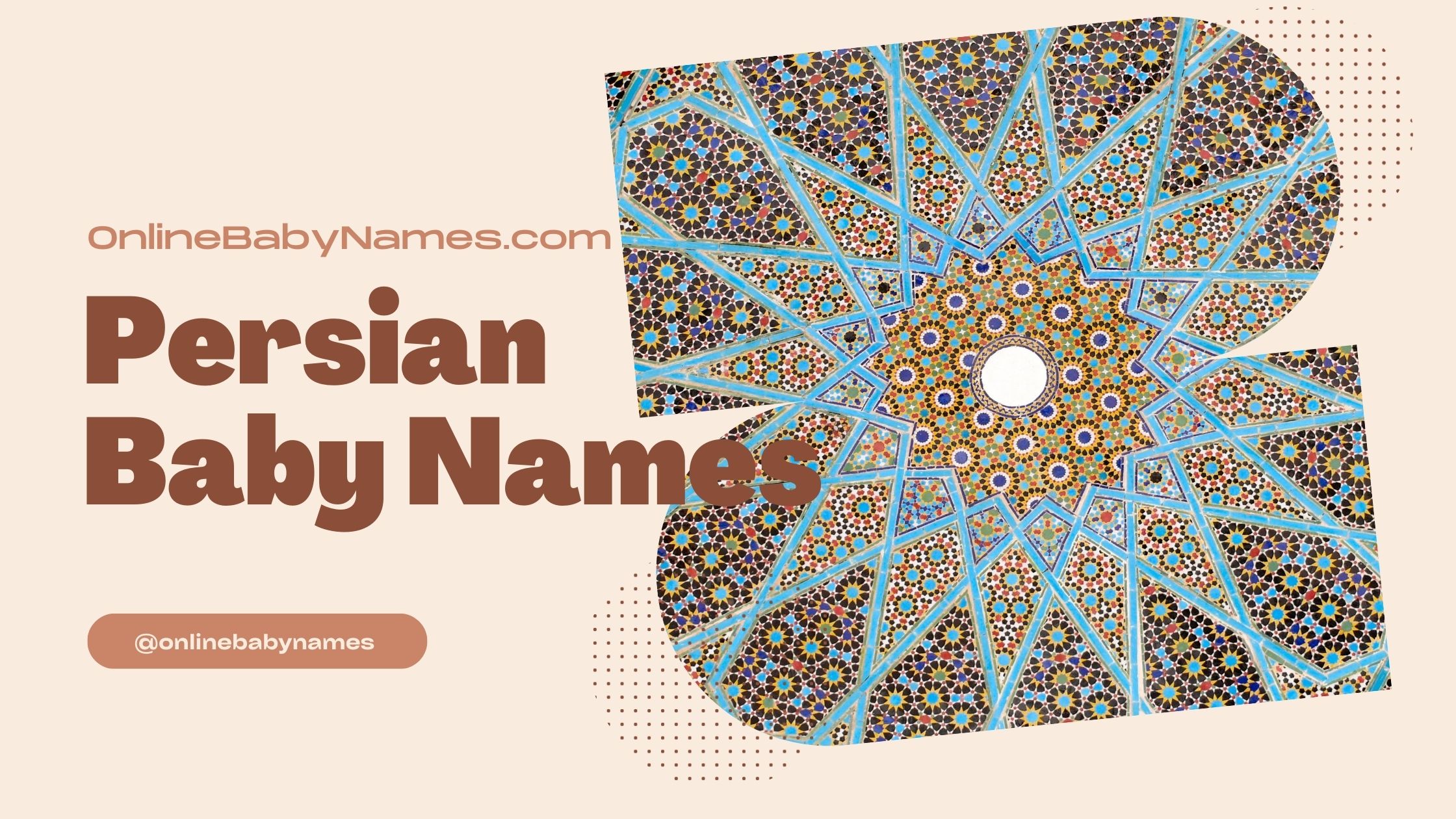
Choosing the perfect baby name can be a daunting task for many parents. With so many options and meanings to consider, it’s essential to find one that resonates with your heritage, beliefs, and values. Aramaic baby names have recently gained popularity, offering a unique and meaningful selection to choose from. This ancient language, spoken during biblical times and known as the mother tongue of Jesus, offers parents a way to connect their child with historical, spiritual, and cultural roots.
The Aramaic language has a rich history, with its roots extending back to ancient times, making it one of the oldest recorded languages. As a Semitic language, it shares similarities with Hebrew and Arabic, and has greatly influenced the development of various alphabets and languages. Aramaic’s significance goes beyond its linguistic legacy, as it’s closely linked to many religious texts, particularly those in Judaism and Christianity. This lends a profound depth and sacred significance to the names derived from this language.
Exploring Aramaic baby names can be an exciting and fulfilling journey. As you embark on this quest to find the perfect name for your little one, I’ll help provide you with a deeper understanding of these names, their historical context, and the meanings behind them. By researching and considering Aramaic names for your child, you can instill a sense of cultural identity and spiritual connection from the very beginning of their life.
Understanding Aramaic Culture
Aramaic culture has a rich and diverse history that dates back thousands of years. It’s essential to understand this culture if you’re considering Aramaic baby names for your child, as it will provide insight into the meaning and significance of these unique names.
The Aramaic language originated in the ancient Near East, around 1200 BCE. I’ve observed that it played a significant role in the region, specifically in areas that are now part of modern-day Iraq, Syria, and Turkey. As a versatile language, Aramaic was used for various purposes, including religious texts, literary works, and legal documents.
In order to better understand Aramaic culture, let me break down some of its key aspects:
- Religion: Aramaic is closely associated with religious traditions, particularly Judaism and Christianity. It’s the language of numerous Biblical texts, the Talmud, and even the words spoken by Jesus himself. This connection to religion is crucial when considering Aramaic baby names, as many names have spiritual meanings and connotations.
- Literature: The Aramaic language boasts a vast collection of literary works, some of which are crucial to the understanding of both Jewish and Christian traditions. These texts span various genres, such as poetry, philosophy, and history, serving as a testament to the richness of Aramaic culture.
- Influence on other languages: As a widespread and influential language, Aramaic has left its mark on several other languages, including Hebrew, Arabic, and Syriac. I’ve found that this influence can be seen in shared vocabulary and grammar, as well as the adoption of the Aramaic script by various cultures.
To give you a better idea of what Aramaic names are like, I’ve compiled a short list of examples, along with their meanings:
| Name | Meaning |
|---|---|
| Abba | Father |
| Dara | Compassionate, pearl of wisdom |
| Eliana | My God has answered, God is my oath |
| Gamaliel | Reward of God, gift from God |
| Tabitha | Gazelle, beauty, grace |
By looking at these examples, you can start to appreciate the depth and significance of Aramaic baby names. The importance of understanding Aramaic culture can’t be overstated, as it provides essential context and meaning to these names, allowing you to make an informed decision for your child’s name.
Historical Significance of Aramaic Names
When browsing through baby names, I’ve noticed a rich history behind Aramaic names and their significance. Aramaic, a Semitic language, was widely spoken and written during ancient times in the Near East. It was the lingua franca for many cultures and played a crucial role in religion, trade, and diplomacy.
Aramaic names often carry deep meanings, often derived from words that represent virtues, qualities, or aspects of nature. Here are some common themes found in Aramaic names:
- Religious significance: Many Aramaic names are associated with famous biblical figures or stories. For example, the name “Thomas” means “twin” in Aramaic and is linked with the Apostle Thomas from the New Testament.
- Personal qualities: Some Aramaic names highlight a person’s traits or characteristics. For instance, the name “Sarah” means “princess” or “noblewoman,” and “Hannah” stands for “grace” or “favor.”
- Aspects of nature: Nature-inspired names are quite popular in Aramaic as well. “Tamar,” which stands for “date palm,” is an example of names inspired by the natural world.
What’s worth mentioning is the influence of Aramaic on other languages, which resulted in a shared pool of names. Hebrew, Arabic, and Syriac are some of the languages that adopted Aramaic names or have similar counterparts.
To illustrate this, here’s a table comparing a few Aramaic names and their counterparts in other Semitic languages:
| Aramaic | Hebrew | Arabic | Syriac |
|---|---|---|---|
| Thomas | Toma | Tuma | Toma |
| Sarah | Sarah | Sara | Sarah |
| Hannah | Hannah | Hana | Hanaa |
If you’re considering an Aramaic name for your baby, it’s essential to understand the pronunciation nuances due to cultural and regional variations. While most Aramaic names are easy to pronounce, some might be more challenging for non-native speakers.
In conclusion, Aramaic baby names offer a treasure trove of meaningful options with deep historical roots. As you explore these names, you’ll appreciate the rich cultural heritage they represent. Parenthetically, these names serve as a reminder of the lasting impact that the Aramaic language has had on the world throughout history.
Popular Aramaic Names and Their Meanings
When it comes to Aramaic baby names, there’s a rich history and cultural significance to consider. I’ve gathered a list of popular Aramaic names, along with their meanings, to help you find the perfect name for your little one.
1. Abigail: Abigail, meaning “my father’s joy,” is a timeless name often associated with kindness and intelligence. It’s been a popular choice for parents for many years and continues to stand the test of time.
2. Bartholomew: This strong and classic name means “son of Talmai.” It’s rich in history as it’s the name of one of the 12 apostles in the New Testament.
3. Gabriel: Associated with the archangel in the Hebrew Bible and Christian tradition, Gabriel means “God is my strength.” It’s a name that reflects inner strength and spiritual guidance, making it an ideal choice for a baby boy.
Here are some more popular Aramaic names and their meanings:
| Name | Meaning |
|---|---|
| Tabitha | “gazelle” |
| Marana | “our lady” |
| Seraphina | “fiery ones” |
| Magdalene | “woman from Magdala” |
| Michael | “who is like God?” |
- Phoebe: Another attractive, ancient name, Phoebe means “radiant” or “shining one.” It’s a name that embodies positivity and light, making it a great choice for your baby girl.
- Raphael: This charming and sophisticated name has a beautiful meaning – “God has healed.” It’s a name rooted in both Aramaic and Hebrew traditions, making it an excellent option for parents looking for a meaningful name with historical significance.
- Susannah: Meaning “lily” or “rose,” Susannah has a delicate and feminine appeal. It’s a classic name that never goes out of style, making it a wonderful choice for your little girl.
- Thomas: A steady and reliable name, Thomas means “twin” in Aramaic. It’s a strong, traditional choice that’s been popular among parents for generations.
- Zerah: An uncommon choice with a unique sound, Zerah means “seed” or “offspring.” If you’re looking for an Aramaic name with a modern twist, this could be the one for your baby boy.
While there are countless Aramaic names to choose from, these popular options offer a blend of tradition, meaning, and style. When selecting a name for your child, consider the history, strength, and beauty that these popular Aramaic names have to offer.
Aramaic Names for Boys: Top Picks
When it comes to Aramaic baby names for boys, there’s no shortage of options. I’ve rounded up some of the top picks that not only boast beautiful meanings, but also have a strong cultural and historical significance. Here’s a closer look at some standout choices in this category:
- Abaddon: This intensifying name means “destruction” or “abyss,” and is often used to embody strength. While it may not be the most common choice, it certainly makes a powerful statement.
- Balthazar: With a meaning like “protect the king,” Balthazar is a name with regal implications. Historically, it’s one of the names attributed to the three wise men who visited the baby Jesus, making it a fitting choice for a boy with strong Christian roots.
- Bartholomew: This classic name, which means “son of Talmai” or “son of the furrows,” can be shortened to the more casual “Bart” or left in its full-length form. As one of the apostles of Jesus, Bartholomew is a name with religious significance.
- Ishmael: Meaning “God hears,” this name has a strong religious connection and is associated with the son of Abraham. It’s a popular choice among those who seek a spiritual name to bestow upon their child.
Let’s review some other Aramaic names for boys that might catch your interest:
- Ezra: A Hebrew name meaning “helper” or “assistant,” popularized by the biblical figure who led the Jews back to Jerusalem from exile.
- Gabriel: This prominent and popular name carries the meaning, “God is my strength.” Angelic connotations make it a heavenly choice for a baby boy.
- Malik: Popular across various cultures, Malik is an Aramaic name that means “king” or “chief.”
- Tobias: With the poignant meaning of “God is good,” this name is derived from the Hebrew name Tobiah.
Due to their depth and versatility, these names are making a comeback in recent times. While some parents choose these names for their religious significance, others find beauty in their meanings and historical associations. Opting for an Aramaic name for your baby boy enables you to honor tradition while also providing your child with a unique, distinctive identity.
Aramaic Names for Girls: Top Choices
I’ve researched the most beautiful and popular Aramaic baby girl names and compiled a list of the top choices. These names carry unique meanings and have a timeless appeal. So, if you’re searching for a rare and elegant name for your little girl, you’re in the right place.
Talitha is a charming Aramaic name that means little girl. This name is derived from the phrase “Talitha Cumi,” which translates to “little girl, arise” in the Bible. It’s a symbol of strength and has a lovely feminine touch.
Another top choice is Tabitha, which means gazelle in Aramaic. Gazelles are graceful animals, representing elegance and swiftness, making this name an excellent option for your baby girl. Tabitha is also a character in the Bible who was known for her good deeds and acts of charity.
If you’re looking for a more unique option, consider Marta. This name means lady or mistress in Aramaic. It’s the original form of the name Martha. It’s not as common but still has a strong historical background, making it a noteworthy choice.
Here are some other top Aramaic baby girl names and their meanings:
- Aksah: ankle bracelet
- Dinah: judged
- Elisha: God is my salvation
- Hosanna: please save us
- Sarai: my princess
To help you remember these names, I’ve created a simple table below:
| Name | Meaning |
|---|---|
| Talitha | little girl |
| Tabitha | gazelle |
| Marta | lady, mistress |
| Aksah | ankle bracelet |
| Dinah | judged |
| Elisha | God is my salvation |
| Hosanna | please save us |
| Sarai | my princess |
In summary, the Aramaic language offers many beautiful and unique options for baby girl names. Some of these names have strong biblical connections, while others carry lovely meanings of their own. Whichever name you choose, an Aramaic baby girl name will undoubtedly stand out and provide a one-of-a-kind touch to your daughter’s identity.
Biblical Aramaic Names and Their Influence
Aramaic is one of the ancient languages that gained prominence throughout the Near East due to its significance in religious texts, particularly the Jewish and Christian scriptures. It’s fascinating to explore the influence of Biblical Aramaic names on today’s baby names and their meanings.
The use of Aramaic names in the Bible can be primarily attributed to the fact that it was the common language spoken during that era. In various biblical accounts, the significant characters bore Aramaic names, which have since seen a resurgence in popularity for their spiritual connection and their unique, ancient flair.
Let’s take a look at some of the most popular Aramaic baby names from the Bible and their meanings:
- Abaddon: Destruction or ruin
- Adriel: God’s flock
- Barabbas: Son of the father
- Bartholomew: Son of Tolmai
- Tabitha: Gazelle
Many of these names appeal to parents who are looking for names with strong historical and religious associations. In fact, some Aramaic baby names even have a direct connection to Jesus Christ. Notable examples include Yeshua (Jesus in Aramaic), which is widely used today in various forms such as Joshua, and Elissa, which is a female form of Elisha and means “God is salvation.”
Aramaic baby names have made their way into other languages too, with some being translated or adapted to suit the linguistic preferences of different cultures. The resulting popularity of these biblical names spans several backgrounds and demographics across the globe.
Here’s a comparison between the original Aramaic names and their adaptations in other languages:
| Aramaic Name | English Adaptation | Spanish Adaptation |
|---|---|---|
| Yeshua | Joshua | Josué |
| Barabbas | Barabbas | Barrabás |
| Gavri’el | Gabriel | Gabriel |
| Ya’aqov | Jacob | Jacobo |
| Yirmiyahu | Jeremiah | Jeremías |
Aramaic baby names continue to be popular choices for parents looking for spiritual depth and historical connections. Overall, the influence of such names is likely to endure, especially considering the ever-growing interest in biblical and ancient names within contemporary society. While many of these names have stood the test of time, new combinations and adaptations will undoubtedly emerge in the future, making this rich linguistic heritage a never-ending source of inspiration for baby names.
Pronunciation Guide for Aramaic Names
Pronouncing Aramaic baby names can be a bit challenging, especially if you’re not familiar with the language. In this section, I’ll provide some helpful tips to get you started on your Aramaic name pronunciation journey.
First, it’s important to understand the basics of the Aramaic language. As a Semitic language, it shares some similarities with Hebrew and Arabic. The Aramaic alphabet consists of 22 consonants, and vowels are indicated by diacritical markings. Keep in mind that many Aramaic names may be transliterated (written in a different alphabet) differently, which can result in various pronunciations.
Here are a few general guidelines to help with pronunciation:
- Aramaic consonants: Pay attention to sounds like the ‘kh’ (ח), the guttural ‘gh’ (غ), and the ‘sh’ (ש). These sounds might be difficult at first, but practicing them will make a difference.
- Vowel sounds: In Aramaic, short vowels are usually written as diacritical marks above or below the consonants. For those not familiar with Aramaic, try to focus on pronouncing the vowels as they appear within the name and adjust the emphasis as needed.
- Emphasis: Aramaic follows a stress pattern on the penultimate syllable. This means the second-to-last syllable is often emphasized in pronunciation. However, some names may break this rule, so listen to native speakers whenever possible.
To familiarize yourself with Aramaic name pronunciation, consider the following examples:
- Ada (אדא): The first ‘a’ sound is short, while the second is long, making the pronunciation Ah-DAH. Some might also pronounce it as AH-dah.
- Tabitha (טביתא): The first ‘t’ is pronounced as an emphatic ‘t’, while the other syllables follow the standard pronunciation, making it ta-BIH-tha.
- Yeshua (ישוע): This name has a more guttural ‘Y’ sound and a soft ‘sh’ sound. It’s pronounced as ye-SHOO-ah.
To further hone your pronunciation skills:
- Listen to native speakers or recordings of Aramaic names. This can help you get an idea of the correct pronunciation.
- Practice saying the names out loud, focusing on the specifics mentioned in these guidelines. Repetition is key to mastering pronunciation.
- When in doubt, ask someone knowledgeable about Aramaic for help. They’ll likely be more than happy to assist you with correct pronunciation.
By following these tips, you’ll be well on your way to becoming confident in pronouncing Aramaic baby names.
The Role of Aramaic Names in Modern Families
Aramaic baby names are not only strikingly beautiful and unique, but they also carry a rich cultural and historical significance. Despite the fact that Aramaic is considered an ancient language, with few speakers remaining today, its influence can still be felt in many modern families. In this section, I’ll discuss the role these traditional names have in today’s world and why they continue to capture the hearts of new parents.
Aramaic names often reflect the values and traditions of the communities they originate from. Families with a strong connection to their heritage might choose an Aramaic name to honor their ancestry and pass down a piece of their rich history. As a result, these names serve as a unique and deeply personal statement about the parents’ roots and the identity they wish to cultivate in their child.
Another reason why Aramaic names remain popular today is their religious significance. Predating both Christianity and Islam, Aramaic has played a critical role in the development of these religions. With important religious texts like sections of the Old Testament and the Talmud written in Aramaic, many devout families see great value in naming their children after noteworthy figures or virtues from these sacred texts. This way, Aramaic names can serve as a beautiful reminder of the family’s beliefs and spiritual connections.
In contemporary society, Aramaic names also stand out for their uniqueness and rarity. In a world with countless trendy and popular baby names, having a distinctive name has become much sought after. With their one-of-a-kind charm, many new parents gravitate toward Aramaic names for their children. These names not only make a powerful statement about individuality but also provide a lasting impression that’s difficult to forget.
Even though the Aramaic language might not be as widely spoken today, its influence continues to shape today’s naming conventions. Here are some of the most popular Aramaic baby names for boys and girls:
- Boys Names:
- Bartholomew: Son of Talmai, furrowed
- Ezra: Help, helper
- Tobias: The Lord is good
- Girls Names:
- Tabitha: Gazelle, graceful
- Martha: Lady, mistress
- Talia: Dew from heaven, female lamb
Aramaic baby names hold a timeless appeal and strong connections to heritage, religion, and individuality which explain their enduring presence in modern families. Their distinctive charm and rich cultural significance make them a timeless choice for parents searching for the perfect name for their newborn.
Honoring Traditions with Aramaic Baby Names
Choosing a baby name can be quite a challenge, especially when parents are looking to honor their traditions. One way to do this is by considering Aramaic baby names. Aramaic, an ancient Semitic language, has a rich history and strong cultural connections. It’s the language of many religious texts, including parts of the Bible and the Talmud.
What makes Aramaic names stand out is their meaningful and timeless nature. Many of these names have been around for centuries, carrying with them stories of wisdom, bravery, and love. Here are some reasons why Aramaic baby names can be a great choice for those looking to uphold traditions:
- Connection to ancient roots: Aramaic is one of the oldest languages in the Middle East, dating back to 900 BCE. It’s been spoken by various ancient cultures and is still used in some communities today. Choosing an Aramaic baby name can be a beautiful way to connect your child to their ancestors and cultural heritage.
- Spiritual significance: As a language of the Bible and the Talmud, many Aramaic names are tied to religious texts and stories. These names often carry significant meanings and blessings, making them a unique choice for parents seeking a name with deeper spiritual roots.
- Distinctiveness: Aramaic names tend to be less common compared to many modern baby names. This uniqueness can help set your child apart and give their name a special quality that underscores your dedication to tradition.
Some popular Aramaic baby names and their meanings include:
- Abigail: “Father’s joy” or “source of joy”
- Bartholomew: “Son of Talmai” or “son of furrows”
- Elijah: “My God is Yahweh”
- Martha: “Lady” or “mistress”
- Tabitha: “Gazelle” or “beauty”
Selecting a baby name is an important decision, and opting for an Aramaic name can offer a sense of pride in cultural and spiritual roots. Delving into the history and significance of these names can lead to a thoughtful and special choice that endures through the ages.
Whichever Aramaic baby name you ultimately choose, remember that it’s a wonderful reflection of the rich traditions you are upholding. Building a connection to ancient roots, celebrating spiritual significance, and embracing distinctiveness are all meaningful aspects of honoring traditions with an Aramaic name.
Conclusion: Embracing Aramaic Heritage in Naming
It’s fascinating to explore the rich cultural heritage of Aramaic baby names and the meanings behind them. Embracing these names as a parent can be an excellent way to pay tribute to this ancient language and connect with a meaningful tradition. Let’s take a moment to reflect on the importance of Aramaic names and how they can impact the newly adopted cultural identity.
Aramaic, with such a unique history and linguistic diversity, offers parents a treasure trove of beautiful and significant options to choose from. There are several reasons to consider an Aramaic name for your child:
- Respecting tradition: By selecting an Aramaic name, you’re maintaining a strong connection to ancient history and cultural heritage.
- Individuality: Aramaic names may be less common in today’s world, providing your child with an exceptional and individualistic name that sets them apart.
- Spirituality: Many Aramaic names have deep spiritual and religious connections, giving your child’s name a powerful, purposeful meaning.
When selecting an Aramaic name, I encourage parents not to shy away from exploring the diverse options available. It’s essential to consider factors such as meaning, pronunciation, and cultural significance.
To summarize, our exploration of Aramaic baby names showcases a world of unique linguistic history and meaning. As a parent, you have the opportunity to embrace this vibrant heritage and help ensure these names continue to be celebrated in future generations. Whether you’re drawn to the traditional, spiritual, or individualistic aspects of these names, your choice will hold a deep sense of history and cultural connection.







